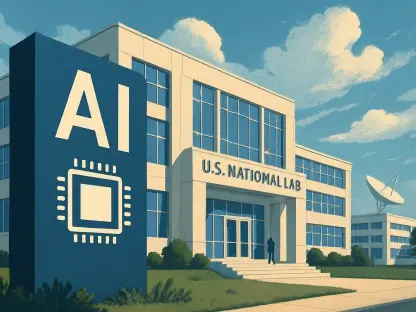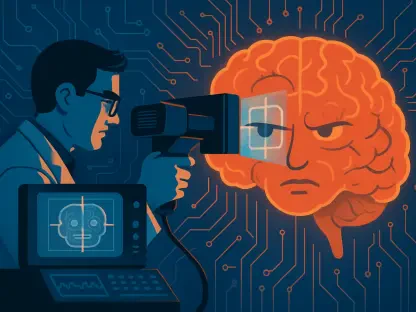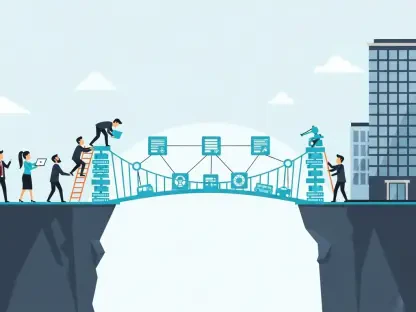In a transformative move for the legal sector, USLAW NETWORK has unveiled a strategic partnership with Legaltech Hub, a globally recognized platform for legal technology insights and analysis, aimed at integrating artificial intelligence (AI) into the practices of its nearly 100 independent law firms. This collaboration, spanning over 6,000 attorneys across the U.S., Canada, Latin America, and Asia, seeks to position member firms at the cutting edge of innovation. With AI rapidly reshaping legal work—from automating document analysis to enhancing predictive analytics—this alliance is poised to redefine how legal services are delivered. The initiative not only focuses on adopting advanced tools but also emphasizes operational efficiency and improved client outcomes. Legaltech Hub’s role as a conduit for expert-driven resources and content ensures that this partnership is grounded in practical, actionable solutions. As technology continues to disrupt traditional practices, this collaboration signals a proactive approach to meeting modern challenges head-on.
Driving Innovation in Legal Services
Building a Competitive Edge
The alliance between USLAW NETWORK and Legaltech Hub represents a forward-thinking commitment to redefining legal practice through the power of technology. By partnering with a platform celebrated for its deep insights into legal tech, USLAW ensures that its member firms gain a significant advantage in an increasingly competitive market. The initial phase of this rollout includes 30 firms alongside a key corporate partner, S-E-A, which specializes in forensic engineering and legal visualization services. This deliberate start highlights a strategic focus on creating measurable impact from the outset. The partnership offers exclusive access to Legaltech Hub’s Premium subscription, packed with tools and curated content tailored to the unique needs of legal professionals. Beyond mere access, the initiative fosters a culture of innovation by encouraging firms to embrace AI as a core component of their service delivery, positioning them as leaders in a tech-driven landscape.
This collaboration also reflects a broader vision of harnessing technology to address future challenges in the legal field. Leaders from both organizations have emphasized the importance of staying ahead of industry trends, with Roger M. Yaffe, CEO of USLAW NETWORK, underscoring the need for creative initiatives that deliver tangible value. Meanwhile, Nikki Shaver, CEO of Legaltech Hub, has highlighted the goal of accelerating the adoption of generative AI to transform legal workflows. The planned integration of Legaltech Hub experts into USLAW events scheduled for 2026 further demonstrates a dedication to fostering meaningful dialogue on AI’s evolving role. This synergy not only enhances the capabilities of participating firms but also sets a benchmark for how technology can be seamlessly woven into the fabric of legal services, ensuring adaptability in a rapidly changing environment.
Pioneering Technological Integration
A key pillar of this partnership is the structured approach to integrating AI and legal tech into everyday practice. USLAW member firms benefit from a suite of offerings, including custom newsletters, virtual programming sessions, and vendor showcases designed to simplify the adoption of complex tools. These resources aim to address practical challenges, such as streamlining case management or enhancing client communication through predictive analytics. Additionally, “office hours” with Legaltech Hub experts provide direct support, ensuring that attorneys and staff can navigate the nuances of new technologies with confidence. This hands-on assistance is critical for firms of varying sizes, from smaller practices to large, multi-jurisdictional entities, allowing them to tailor tech solutions to their specific needs. The result is a more agile and responsive legal service model that prioritizes both efficiency and client satisfaction.
Another significant aspect of this technological integration is the forward-looking plan to involve in-house legal departments in future programming, with further details expected in early 2026. This inclusive approach recognizes the interconnected nature of legal services, where collaboration between external counsel and internal teams is increasingly vital. By extending an invitation to decision-makers within corporate legal environments, the partnership aims to create a broader ecosystem of innovation. Such efforts underscore a commitment to not just adopting technology, but also ensuring it serves the diverse stakeholders within the legal industry. This phased and inclusive rollout mitigates risks associated with rapid tech adoption, such as inadequate training or resistance to change, and instead fosters a sustainable model for long-term success in leveraging AI.
Empowering Firms Through Education
Closing the Technology Gap
Education stands as a cornerstone of the collaboration between USLAW NETWORK and Legaltech Hub, with a clear focus on demystifying AI for legal professionals across various roles. The partnership provides access to a comprehensive library of resources and expert-led sessions, ensuring that everyone—from attorneys to administrative staff—can understand and utilize cutting-edge tools effectively. This initiative directly tackles the common barrier of technological complexity, which often hinders firms from fully embracing digital solutions. By offering tailored educational content, the collaboration equips member firms to integrate AI into their workflows, whether for automating routine tasks or enhancing strategic decision-making. The result is a workforce better prepared to meet client demands with precision and efficiency, while also fostering a deeper appreciation for how technology can elevate legal practice.
Beyond basic understanding, the educational framework of this partnership emphasizes practical application, ensuring that learning translates into real-world impact. Virtual programming sessions and curated materials are designed to address specific pain points, such as improving document review processes or leveraging data for case predictions. This hands-on approach helps bridge the gap between theoretical knowledge and actionable outcomes, empowering firms to see immediate benefits from their tech investments. With a strategic expansion planned for 2026, the initiative also prioritizes adaptability, allowing for adjustments based on early feedback from participating firms. This thoughtful structure not only builds confidence in using AI but also cultivates a culture of continuous learning, essential for staying relevant in an industry where technological advancements are relentless.
Fostering Sustainable Adoption
Sustainability in tech adoption is a critical focus of this educational effort, ensuring that firms can maintain momentum beyond the initial excitement of new tools. The partnership provides ongoing support through regular updates to resources and access to evolving best practices, helping legal professionals stay current with AI developments. This long-term perspective is particularly valuable for smaller firms that may lack dedicated tech teams, as it levels the playing field by offering structured guidance. By embedding education into the core of the initiative, the collaboration addresses potential resistance to change, a common hurdle in traditional legal environments. The goal is to create a ripple effect, where informed staff become advocates for technology, driving broader acceptance and utilization across their organizations.
Moreover, the emphasis on accessibility ensures that education reaches all levels of a firm, from management to technical support staff, fostering a holistic approach to innovation. The planned inclusion of in-house legal teams in future educational programming further amplifies this impact, creating opportunities for cross-pollination of ideas between external and internal legal experts. This comprehensive strategy not only enhances individual firm capabilities but also contributes to a more tech-savvy legal community overall. By prioritizing sustainable learning, the partnership sets a foundation for enduring change, ensuring that AI and legal tech become integral to how firms operate rather than temporary novelties. Such foresight is crucial for navigating the complexities of digital transformation in a field as dynamic as law.
Industry-Wide Implications
Shaping Future Standards
The collaboration between USLAW NETWORK and Legaltech Hub carries profound implications for the legal industry at large, setting a precedent for how professional networks can drive technological progress. By prioritizing the integration of AI and digital tools, this partnership crafts a model that other organizations may emulate, potentially accelerating the sector’s shift toward greater digital adoption. The initiative’s focus on tangible outcomes—such as improved client services and streamlined operations—demonstrates the real value of tech investment, challenging the notion that innovation is a luxury rather than a necessity. As industry leaders vocalize the importance of staying competitive through technology, as seen in statements from both CEOs, this alliance becomes a catalyst for broader change, encouraging firms outside the network to explore similar advancements.
Additionally, the partnership’s influence extends beyond immediate participants, signaling a future where technology becomes a unifying force across legal practices. The planned engagement with in-house legal departments in 2026 hints at a more connected ecosystem, where external counsel and corporate teams collaborate more closely through shared tech platforms. This interconnectedness could redefine how legal challenges are addressed, fostering solutions that are both innovative and inclusive. By establishing a framework for knowledge sharing and practical implementation, the collaboration not only elevates USLAW member firms but also raises the bar for industry standards. The ripple effect of such a model could inspire a wave of partnerships, ultimately transforming the legal landscape into one that is more agile, data-driven, and client-focused.
Catalyzing Broader Transformation
Looking at the bigger picture, this partnership acts as a powerful driver for transformation within the legal field, pushing boundaries on how technology is perceived and utilized. The commitment to education and accessibility that defines the initiative lays a strong foundation for addressing systemic barriers to tech adoption, such as limited resources or expertise. By equipping a diverse range of legal professionals with the tools to succeed, the collaboration sparks a movement toward democratization of AI, ensuring that innovation is not confined to large firms with substantial budgets. This inclusive approach helps reshape perceptions, proving that digital tools can enhance every facet of legal work, regardless of a firm’s scale or specialization.
Reflecting on the strides made, the alliance also paves the way for future considerations, encouraging legal networks to explore how partnerships with tech platforms can address emerging challenges. The focus on phased expansion and strategic planning provides valuable lessons on balancing enthusiasm for innovation with practical implementation. Moving forward, the industry is prompted to consider how similar initiatives can tackle issues like cybersecurity or client data management through AI. This collaboration stands as a reminder that sustained investment in technology and education is essential for maintaining relevance, offering a roadmap for others to build upon as the legal sector continues to evolve.









